Relation Diplomacy
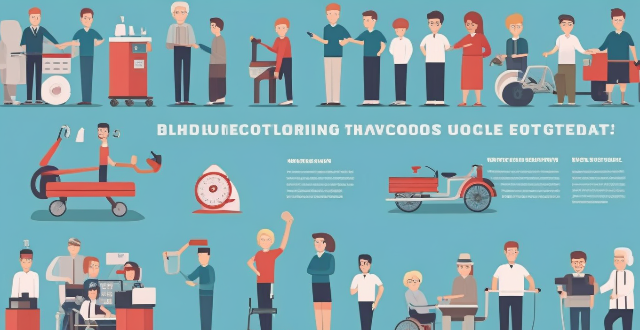
How can sports diplomacy be leveraged to improve relations between nations ?
Sports diplomacy is a powerful tool for improving international relations by using sports as a universal language to break down barriers, promote peace, and foster understanding. This can be achieved through organizing international events and cultural exchange programs, supporting youth exchanges and community-based initiatives, involving influential sports figures in diplomatic missions, and utilizing media and public platforms to engage wider audiences. By leveraging the power of sports, nations can improve their relationships in a constructive and engaging manner, serving as a soft power strategy with far-reaching benefits.

How does sports diplomacy contribute to international relations ?
Sports diplomacy is a form of soft power that uses sports events and activities to foster relationships between nations. It contributes to international relations by enhancing mutual understanding, promoting economic cooperation, and promoting peace and security. Sports diplomacy promotes cultural exchange and builds trust between nations. It also attracts investment, creates job opportunities, reduces tensions, and enhances security cooperation. Overall, sports diplomacy plays a crucial role in building stronger relationships between nations.

How does space exploration impact global cooperation and diplomacy ?
Space exploration has been a significant driver of global cooperation and diplomacy since the dawn of the space age. The pursuit of understanding our universe and the quest to explore beyond Earth's boundaries have fostered international collaboration, technological advancements, and diplomatic engagements that transcend traditional geopolitical tensions. In this discussion, we will delve into the various ways space exploration influences global cooperation and diplomacy.
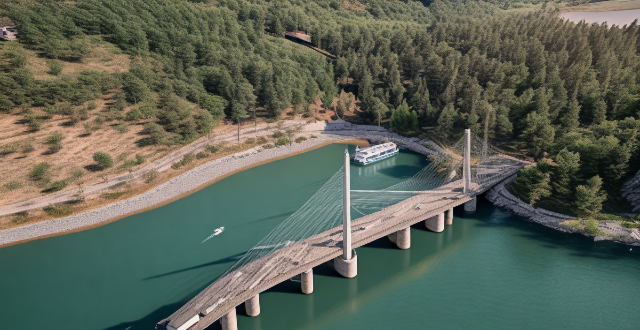
What are the ethical considerations when sports are used in international diplomacy ?
Sports have been used as a tool for international diplomacy, but there are ethical considerations to take into account. These include respecting cultural differences, promoting fairness and equity, avoiding political manipulation, and protecting athletes' rights. By doing so, sports can continue to serve as a positive force for building bridges between nations.
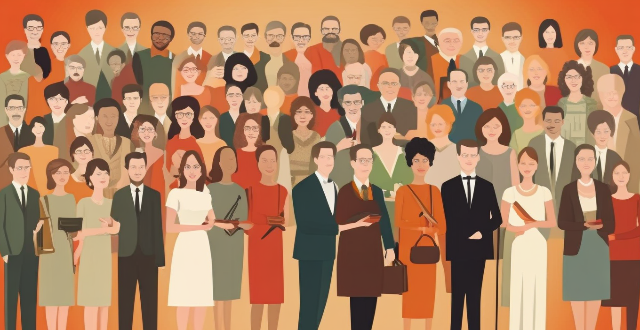
Have there been any instances where sporting events have led to improved diplomatic relations ?
Sporting events have been used to improve diplomatic relations between countries, bringing people together regardless of their backgrounds or beliefs. Examples include Ping-Pong diplomacy in the 1970s between China and the US, soccer matches promoting peace in the Middle East, the Olympic Truce symbolizing goodwill and cooperation, and rugby matches representing reconciliation and forgiveness.

How does climate change affect international relations ?
Climate change profoundly influences international relations by introducing new dimensions to security concerns, economic challenges, humanitarian needs, and diplomatic efforts.

How does a home equity loan work in relation to my mortgage ?
A home equity loan allows homeowners to borrow against the equity in their property, serving as a second mortgage without requiring refinancing. It offers advantages such as lower interest rates and potential tax deductions but also presents risks like foreclosure and additional debt. Understanding how it works in relation to your primary mortgage is crucial for making an informed financial decision.
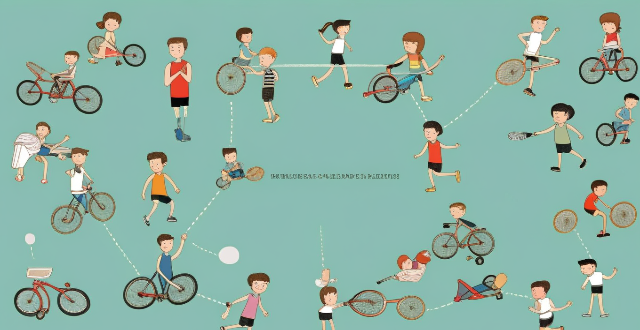
Is it possible for sports to transcend political differences and bring nations together ?
The article discusses the potential of sports to transcend political differences and bring nations together. It highlights three key ways in which sports can achieve this: through competition, cultural exchange, and diplomacy. The power of sports is demonstrated through various examples, such as the Olympics, World Cup, NBA, Formula One, Ping-Pong Diplomacy, and Peace Games. The article concludes that while political conflicts may still exist outside of sports, these activities provide a platform for positive interactions and collaboration that can lead to lasting change.

How has the Clean Energy Revolution influenced international relations ?
The clean energy revolution is transforming international relations by introducing new dynamics of competition and cooperation, redefining economic interests, and creating novel avenues for diplomatic engagement. Key areas of impact include: 1. Economic Competition and Cooperation: Countries compete for resources critical to clean energy technologies, vie for technology leadership, seek export markets, and create green economies. 2. Environmental Diplomacy: The Paris Agreement and other pacts foster cooperation on climate action, shared environmental goals strengthen diplomatic relations, and international institutions facilitate agreements on clean energy and climate issues. 3. Geopolitical Strategies: Countries enhance their energy security by reducing dependence on fossil fuels, wield influence through sustainability expertise, and use clean energy policies as tools in diplomacy or sanctions. 4. Development Assistance and Capacity Building: Wealthy nations and organizations provide financial assistance and technology transfer to help developing countries adopt clean energy solutions and build institutional capacity. As countries adapt to the clean energy revolution, their interactions will continue to be influenced by sustainable development goals and efforts to mitigate climate change.

How does consistent physical activity affect the immune system in relation to chronic disease prevention ?
The article discusses the impact of consistent physical activity on the immune system and its role in preventing chronic diseases. It explains that regular exercise can increase the number and activity of immune cells, reduce inflammation, and improve overall health. The article also provides recommendations for exercise and emphasizes the importance of incorporating physical activity into one's lifestyle to prevent chronic diseases and improve well-being.

How do cultural exchanges through sports influence international relations ?
Cultural exchanges through sports have a significant impact on international relations by promoting mutual understanding, enhancing diplomatic relations, promoting peace and unity, providing economic and social benefits, increasing globalization, and presenting potential challenges such as nationalism and commercialization concerns. These exchanges foster understanding, build bridges between nations, and contribute to a greater sense of global community.
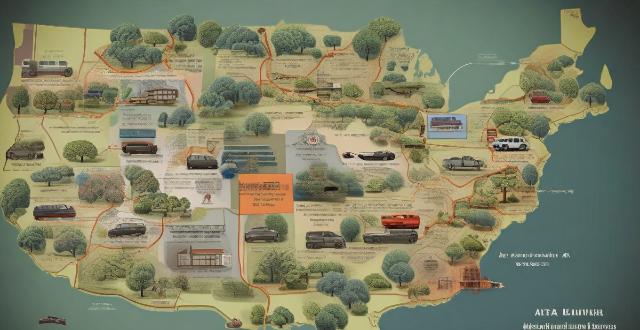
How do immigration policies influence international relations ?
Immigration policies have a significant impact on international relations, affecting economic partnerships, diplomatic ties, and cultural exchange. These policies can attract highly skilled workers, boost innovation, and enhance trade relationships, but they can also lead to job market issues and social tensions. Cultural diversification from immigration can improve mutual understanding and respect between nations, while restrictive policies can hinder the movement of diplomatic personnel. A country's approach to refugees and asylum seekers can influence its global standing, and the handling of refugee crises can lead to political tensions. Economic migration can cause a brain drain or be viewed as a form of development assistance. Immigration policies are a critical area of focus for international relations due to their far-reaching implications.

How do economic indicators reflect the standard of living in a country ?
Economic indicators such as GDP, income distribution, employment rates, healthcare and education spending, housing affordability, and inflation rates are used to gauge the standard of living in a country. These metrics provide insights into economic performance and health, reflecting aspects like access to education, healthcare, housing, employment opportunities, and consumer goods. A higher GDP per capita, lower Gini coefficient values, higher employment rates, greater healthcare and education spending, affordable housing, and stable or low inflation rates generally indicate a better standard of living. However, these indicators should be considered collectively for a comprehensive understanding of the economic conditions that influence citizens' lives.

In what ways does sports culture influence political discourse and international relations ?
The text discusses how sports culture significantly impacts political discourse and international relations. It highlights various ways this influence manifests, including promoting diplomacy and peace, fueling nationalism and identity, driving economic development, advocating for social issues, and shaping public opinion through media representation. The article also mentions specific examples such as "Ping-Pong Diplomacy," Olympic Truce, and the involvement of sports figures in peace agreements. It underscores the role of sports in cultural exchange, global marketplace activities, brand promotion, and environmental concerns. Additionally, it touches upon the use of sports for propaganda purposes, controversies like doping scandals, and their effects on international perceptions. Overall, the text emphasizes that sports culture is a potent force intertwined with global dynamics, reflecting and shaping interactions between nations.

Can sports be used as a tool for soft power and influence in international politics ?
**Sports as a Tool for Soft Power and Influence in International Politics:** **Cultural Diplomacy:** Sports events offer platforms for countries to showcase their culture and history, fostering people-to-people exchanges that can lead to improved diplomatic relations. **Economic Impact:** Major sporting events can boost tourism and attract foreign investment, with infrastructure developments benefiting the host country's economy long-term. **Political Influence:** Sports diplomacy allows for informal discussions between politicians, symbolizing national strength and unity through successful hosting or victories. **Challenges and Limitations:** Considerations include resource allocation concerns, potential for political conflicts during events, and issues of commercialization affecting sports' role in soft power initiatives.
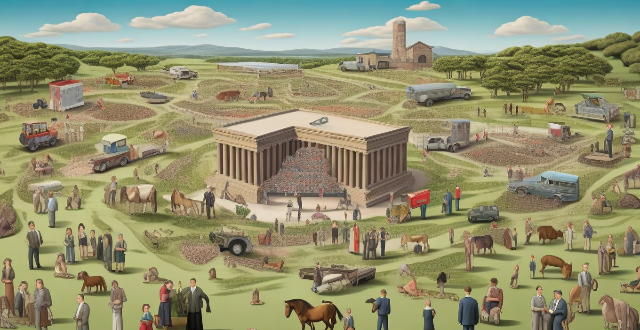
In what ways does sports culture contribute to national identity ?
Sports culture significantly contributes to national identity by representing national values, promoting cultural exchange and diplomacy, preserving historical traditions, evoking national pride and unity, and enhancing economic growth. It serves as a powerful tool for uniting people under a common banner and showcasing the unique character of a nation to the world.

What is listeria and how does it relate to food safety, particularly in ready-to-eat foods ?
**Listeria: An Overview and Its Relation to Food Safety** The text provides an overview of Listeria, focusing on its relation to food safety. It explains that Listeria is a genus of bacteria, with *Listeria monocytogenes* being the most notable species in terms of food safety. This bacterium can cause listeriosis, a serious illness affecting vulnerable populations. The text highlights the prevalence of this bacterium in ready-to-eat foods, which are not intended to be cooked or reheated before consumption, making them potential vehicles for transmitting the bacterium directly to consumers. It lists high-risk RTE foods and discusses sources of contamination, control measures, and the importance of consumer awareness in ensuring food safety. Overall, the text emphasizes the significance of stringent food safety practices throughout the entire food supply chain and the role of consumer education in mitigating the risk of contamination and infection.
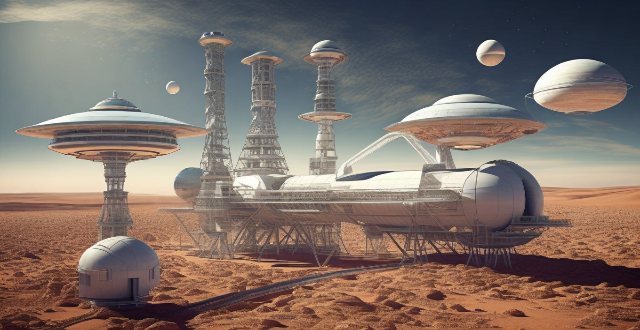
What are the ethical considerations of space exploration and colonization ?
The article discusses the ethical considerations of space exploration and colonization, emphasizing the importance of balancing potential benefits with risks, considering environmental impact, addressing interplanetary diplomacy, and developing a comprehensive legal and regulatory framework. It highlights the need for a strong ethical framework to ensure responsible and sustainable pursuit of space endeavors.

How does sports culture affect the economy, both locally and internationally ?
The text discusses the impact of sports culture on the economy, highlighting its benefits at both local and international levels. It mentions increased tourism, job creation, infrastructure development, and revenue generation as key ways in which sports culture affects the local economy. Additionally, it notes that hosting major sporting events can lead to infrastructure development and improved quality of life for residents. At the international level, the article emphasizes the role of sports culture in global branding efforts, economic growth, and diplomacy. It points out that successful athletes and teams become ambassadors for their countries, promoting national pride and cultural identity. This exposure can lead to increased tourism and investment in the country. Moreover, international sporting events create opportunities for businesses to expand into new markets and foster positive relations between countries through sports diplomacy.

Can sports events promote peace between nations ?
Sports events can promote peace between nations by breaking down barriers, fostering cultural exchange, and providing a platform for diplomatic engagement. Historical and modern-day examples show the potential of sports diplomacy, but challenges such as political interference and commercialization must be considered. Overall, sports have the power to bring people together and promote understanding, making them a valuable tool for promoting peace.

Which countries have ratified the Paris Climate Agreement ?
The Paris Climate Agreement is a global pact to tackle climate change. Since its adoption in 2015, numerous countries around the world have ratified this agreement. The United States initially ratified the Paris Agreement but later announced its withdrawal on June 1, 2017. China has pledged to reach peak CO2 emissions by 2030 and increase the share of non-fossil fuels in its energy consumption to around 20% by the same year. The EU and its member states aim to reduce greenhouse gas emissions at least 40% below 1990 levels by 2030. India aims to achieve about 40% cumulative electric power installed capacity from non-fossil fuel based energy resources by 2030. Brazil has committed to reducing greenhouse gas emissions by 37% by 2025 and by 43% by 2030, both in relation to 2005 levels. Like the US, Canada also withdrew from the Paris Agreement on November 4, 2019.

What role do governments play in implementing climate action plans ?
Governments play a crucial role in implementing climate action plans by setting targets, enacting legislation, providing incentives, investing in research and development, regulating industries, raising public awareness, developing infrastructure, supporting innovation, and engaging in international diplomacy. These actions help reduce greenhouse gas emissions, promote sustainable development, and build resilience against the impacts of climate change.

How often do exchange rates fluctuate ?
Exchange rates, which determine the value of one currency in relation to another, are subject to constant fluctuations influenced by various factors such as economic indicators, political events, market speculation, and central bank policies. These fluctuations occur at different frequencies ranging from intraday to yearly intervals and can significantly impact traders, investors, and businesses involved in international trade. It is crucial for these entities to stay informed about exchange rate movements to make well-informed financial decisions.
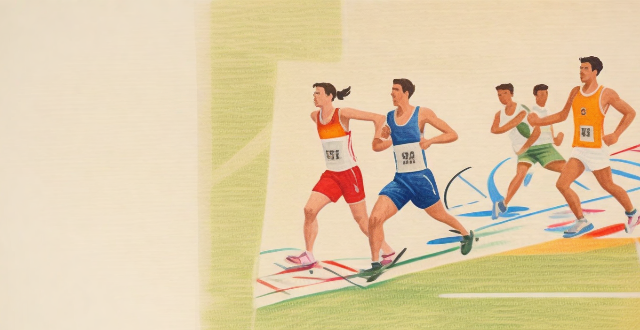
What are some examples of sports events that have promoted international peace ?
This article discusses the role of sports events in promoting international peace and understanding. It highlights the Olympic Games and the FIFA World Cup as two major sporting events that have brought together athletes from around the world to compete in a spirit of friendship, solidarity, and fair play. The article also mentions other events like the Peace and Sport Forum, the United Nations Office on Sport for Development and Peace (UNOSDP), and the Commonwealth Games, which serve as platforms for cultural exchange and diplomacy between participating countries. Overall, the article emphasizes the importance of using sport as a tool for promoting peace and building bridges between nations.

Can international cooperation help mitigate climate-related conflicts ?
The text discusses how climate change can exacerbate conflicts and the role of international cooperation in mitigating these impacts. It outlines various challenges posed by climate change, such as water scarcity, food insecurity, natural disasters, and economic instability, and how they can lead to conflicts. The text then explores the potential roles of international cooperation, including diplomacy, technology transfer, financial support, education, and capacity building. It also highlights challenges to achieving effective international cooperation, such as political will, economic disparities, and cultural differences. Finally, the text concludes that international cooperation is essential in addressing climate-related conflicts and that collaborative efforts can lead to a more resilient and equitable world.
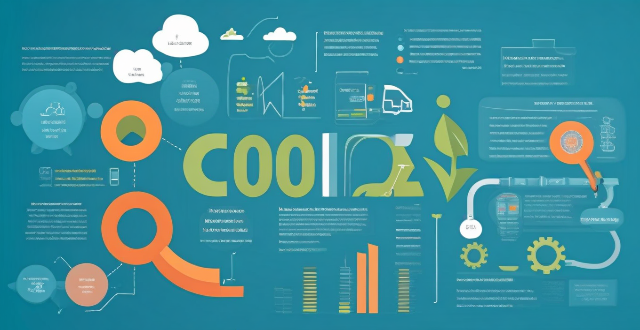
How can international cooperation on climate change contribute to global security ?
International cooperation on climate change is vital for global security. It helps mitigate environmental disasters, promotes economic stability and growth, enhances social cohesion and peace, facilitates technology and knowledge sharing, and strengthens global governance and diplomacy. Through joint efforts, nations can address one of the most pressing challenges of our time and secure a safer future for all.

How do military strategies need to adapt to address the consequences of climate change ?
The text discusses the challenges and adaptations necessary for military strategies to account for the consequences of climate change. It emphasizes the need for impact assessments, operational planning, training and preparation, technology and innovation, cooperation and diplomacy, and readiness and response. Key points include understanding how climate change affects specific regions, developing resilient supply chains and adaptive infrastructure, incorporating climate change into training scenarios, utilizing advanced predictive tools, working with allies and international organizations, and establishing rapid response capabilities. By integrating these elements into defense policy, militaries can remain effective and resilient in the face of a changing climate.
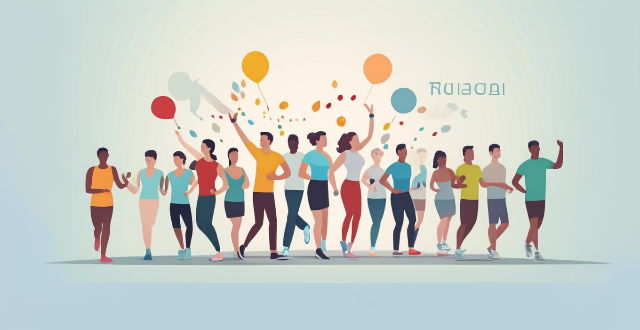
What role do international sports organizations play in fostering global cooperation ?
International sports organizations are crucial for global cooperation, promoting peace, cultural exchange, economic development, health, gender equality, environmental sustainability, and humanitarian aid.

Are there any cultural differences in perceptions of academic integrity ?
The perception of academic integrity can vary across cultures due to differences in values, beliefs, and practices. In individualistic cultures, academic integrity is often viewed as an individual responsibility, while collectivist cultures place more emphasis on group harmony and cooperation. Power distance can also influence perceptions of academic integrity, with high power distance cultures being more reluctant to report instances of academic dishonesty. The concept of time can also play a role, with monochronic cultures prioritizing efficiency over quality, while polychronic cultures focus on building relationships. Attitudes towards rules and regulations can also vary across cultures, with rule-based cultures viewing academic integrity as a set of strict rules, while relation-based cultures view it as something that depends on the relationship between individuals. Understanding these cultural differences can help educators design effective strategies to promote academic integrity among diverse student populations.
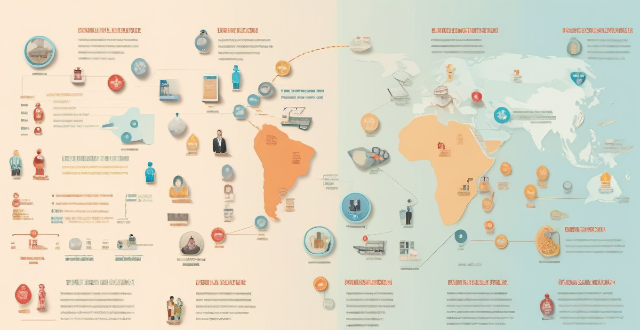
What challenges do countries face when working together on a global scale ?
Global collaboration faces political, economic, cultural, and logistical challenges. Politically, differing national interests, sovereignty concerns, and leadership dynamics can impede progress. Economically, fair resource allocation, trade agreements, and sanctions are contentious issues. Culturally, language barriers, diverse values, and educational gaps pose challenges. Logistically, coordination across time zones, travel restrictions, and technology disparities complicate matters. Addressing these challenges with open dialogue and cooperation is key to achieving shared global goals.